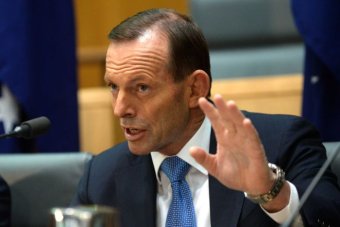
An open thread where, at your leisure, you can discuss anything you like, well, within reason and the Comments Policy. Include here news and views, plus any notable personal experiences from the week and the weekend.
For climate topics please use the most recent Climate clippings.
The gentleman in the image is Voltaire, who for a time graced the court of Frederick II of Prussia, known as Frederick the Great. King Fred loved to talk about the universe and everything at the end of a day’s work. He also used the salons of Berlin to get feedback in the development of public policy.
Fred would only talk in French; he regarded German as barbaric. Here we’ll use English.
The thread will be a stoush-free zone. The Comments Policy says:
The aim [of this site] is to provide a venue for people to contribute and to engage in a civil and respectful manner.
Here are a few bits and pieces that came to my attention last week.
1. Australia’s internet speeds have slumped to 44th in the world
The State of the Internet Report from cloud service provider Akamai ranks Australia 44th for average connection speed.
One of the reasons why we’re falling down the list is that we’re moving towards utilising a copper based access network. Whereas previously, under the Labor government, we were moving towards an all fibre-based network, which is what most of our competitors are now doing. And we’re also seeing this drop because, as we keep changing direction with the NBN, we’re putting in large delays before the roll-out is actually occurring.
NetFlix which is meant to be coming online towards the end of March may not be able to be accessed everywhere and will be of poorer quality than in other countries. Many of our competitors are looking at gigabit broadband download speeds. Thanks to the Abbott government we’ll be in the Dark Ages.
2. Morgan poll
The Morgan poll ploughs on over the festive season. On LNP leadership:
Former Liberal Party Leader Malcolm Turnbull is preferred as Liberal Leader by 36% of electors (down 2% since September 30-October 2, 2014) but still well ahead of Deputy Leader Julie Bishop (26%, up 10%) and Prime Minister Tony Abbott (14%, down 5%). Bishop is now ahead of Abbott for the first time as preferred Liberal Leader. No other candidate has more than 4% support.
However, L-NP voters just narrowly prefer Prime Minister Tony Abbott (30%, down 11%) as Liberal Party Leader ahead of Deputy Leader Julie Bishop (28%, up 11%) and Malcolm Turnbull (26%, up 2%). Treasurer Joe Hockey has lost significant support and is now at only 4% (down 4%).
Hockey seems to have evaporated after announcing that poor people don’t drive cars. Meanwhile Bishop is surging.
3. MYEFO disappears
Speaking of Joe Hockey, the Mid-Year Economic and Fiscal Outlook, coinciding with the Sydney siege, has disappeared from view. John Quiggin has a neat summary of why it undercuts the LNP policy narrative:
Key elements of that narrative are:
* Debt and deficits are always bad, are now at catastrophic levels and are the product of Labor profligacy
* More labour market reform is needed to prevent a wages explosion resulting in higher unemployment
* The mining sector is the key to Australian prosperity and was unfairly burdened by the carbon and mineral resource rent taxes
Debt and deficits are growing as a result of weaker revenue, exactly as happened under Labor, and in any case do not constitute a serious problem.
As regards wages, not only does MYEFO note that wage growth (low and stable for many years) has been weaker than ever, this is noted as one of the main factors leading to the decline in revenue growth.
The mining industry was never a large employer and is now shedding jobs rapidly.
The good side of this is that the overvaluation of the $A driven by the mining boom is finally fading, with the result that the net impact of the end of the boom is forecast to be quite small. We have much more to fear from a renewed global financial crisis than from a decline in mineral prices.
4. The old guard still controls the grand slam court
Greg Jericho turns his analytical mind to tennis, well male tennis, suggesting that the old guard are still in control and don’t write Federer off – Jimmy Connors played until he was 39 and Andre Agassi until he was 36. Federer is only 33. He didn’t mention Ken “Muscles” Rosewall, who won his last tournament at the age of 43.
I’ve always thought that most grand slams are won by people in the age bracket 24-28. Jericho suggests 27 as the age beyond which winning becomes tough. Novak Djokovic and Andy Murray are 27, Nadal is 28. They are not true contemporaries of Federer.
I have no idea who is going to win, but I think it’s a bridge too far to expect Federer to win seven best-of-five matches in a row.
But Sarina Williams at age 33, you wouldn’t bet against her! Of course she only plays the best of three, but that’s another story!
I do think Djokovic, Nadal and Federer are a cut above the rest, with Andrew Murray also in the mix. They may stay in charge for another year or two.



